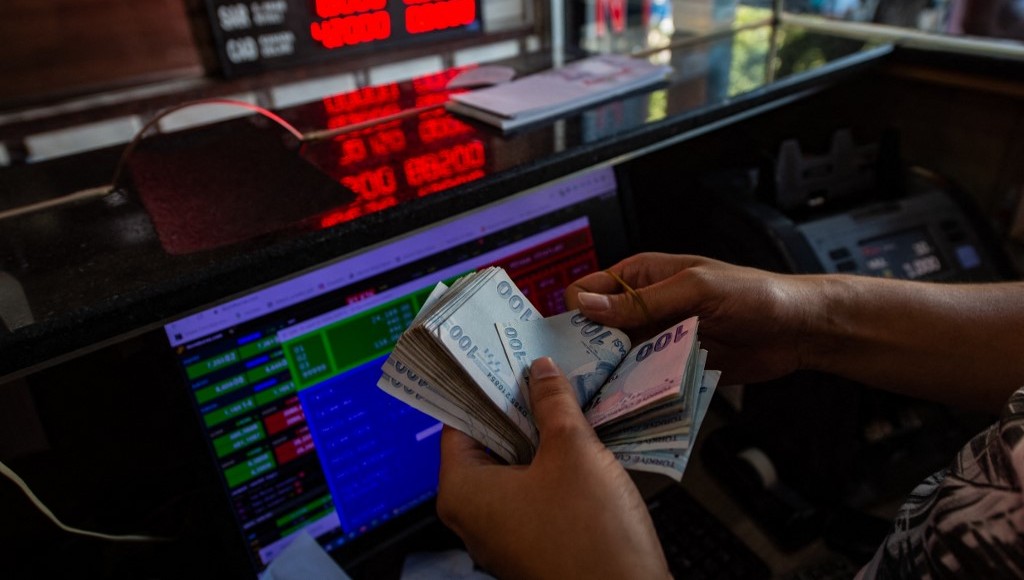The Turkish lira suffered one of its biggest falls of the year on Tuesday and hit new historic lows to cement its status as the year’s worst-performing emerging market currency, Agence France-Presse reported.
The lira fell by nearly four percent to 10.36 to the dollar before clawing back some of its losses ahead of a meeting on Thursday at which the central bank is expected to lower interest rates for the third successive month.
Turkey’s nominally independent bank has bowed to incessant pressure from President Recep Tayyip Erdoğan to lower the cost of doing business in order to stimulate growth.
This push has put Turkey’s economy on course to expand by roughly 10 percent this year.
But it has also seen the official annual inflation rate reach almost 20 percent and the lira lose more than a quarter of its value against the dollar this year.
“There is a growing risk that the central bank’s continued obedience to pressure from President Erdoğan for interest rate cuts results in sharp and disorderly falls in the currency over the coming days and weeks,” Capital Economics analyst Jason Tuvey said in a research note.
The central bank has lowered its policy rate from 19 percent in October to 16 percent last month.
This means that Turkey has a negative real interest rate — a policy that devalues lira assets and gives additional incentive for people to buy foreign currencies and gold.
The lira has been put under additional pressure by concerns that the US Federal Reserve may raise interests rates sooner than expected to fight a spike in inflation.
This makes dollar holdings more attractive and drains investments away from emerging markets.
But analysts place most of Turkey’s problems on unconventional economic policies that put the focus on economic growth at the price of high inflation and a depreciating currency.
Such measures help can help exporters and big businesses — but hurt ordinary citizens that see prices shoot up for daily goods.
“The main driver of the lira’s latest fall is that investors are increasingly concerned about the state of domestic policymaking,” Tuvey wrote.
Emerging market economist Timothy Ash said Erdoğan — whose approval ratings are near the lowest point of his 19-year rule — has decided that rapid economic expansion at any cost will help him win re-election in polls scheduled for 2023.
“It an interesting call that the Erdoğan team think growth and jobs rather than beating down on inflation will win them the next election,” Ash wrote in a note to clients.



